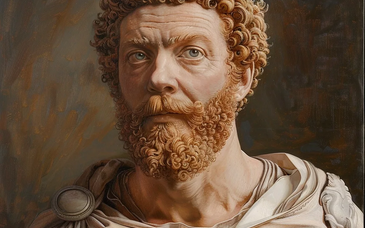Lectures
- The Geography of Italy
- The Etruscans
- The Roman Republic
- Roman Expansion and the Punic Wars
- The Civil War
- The Rise of Julius Casear
Instructional Goal: Students will know the major developments of the Etruscan civilization and understand the impact it had on the Roman civilization.
I. The earliest known civilization on the Italian peninsula was the Etruscan.
- The Etruscan civilization flourished c. 1000-505 BC.
- The Etruscans probably came from the Balkan area between the Black sea and the Caspian sea.
- They displaced an early culture known as the "Latins" which were still neolithic.
- According the legend the 1st kings were the twins Romulus and Remus who were raised by a she-wolf.
- By 600 BC the Etruscan civilization was at its height.
- A dynasty of kings known as the Tarquins ruled during the apex of the civilization.
- The last Tarquin fell from power in 505 BC.
II. The Etruscan civilization is clouded in mystery.
- Frescos, which were colorful and full of active images, provide us with most of our knowledge.
- A writing existed, which appears similar to Hittite, but has not be deciphered.
- People appeared to have been fun-loving and active people.
- Evidence supports a theory that they were very religious and relied heavily on prophets.
- Their cities were small, walled villages.
III. The Etruscans fell from power as rapidly as they rose.
- A coalition of Italian city-states rebelled against Etruscan rule late in the 6th century BC.
- The last Tarquin was a despot who was hated by the other Italians.
- Etruscans had not developed more modern weapons of war as other Italians had.
Assignment: Students read "Romulus and Remus" By Dionysus.





